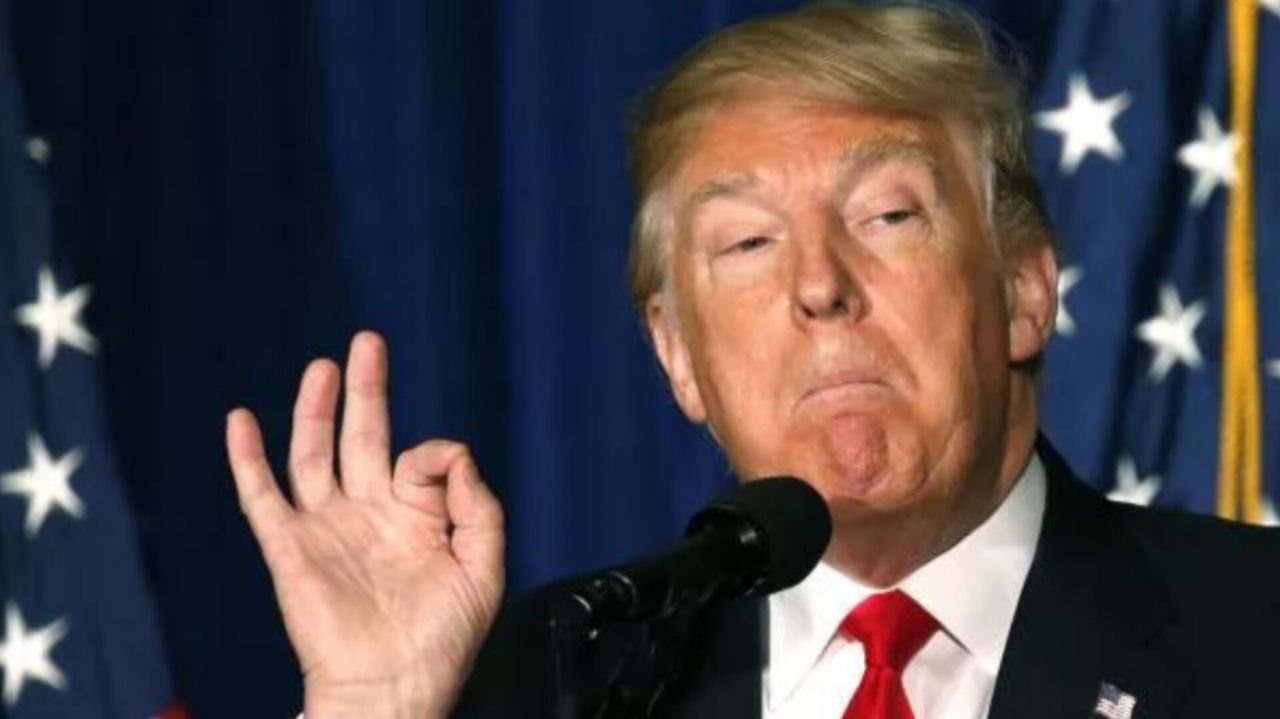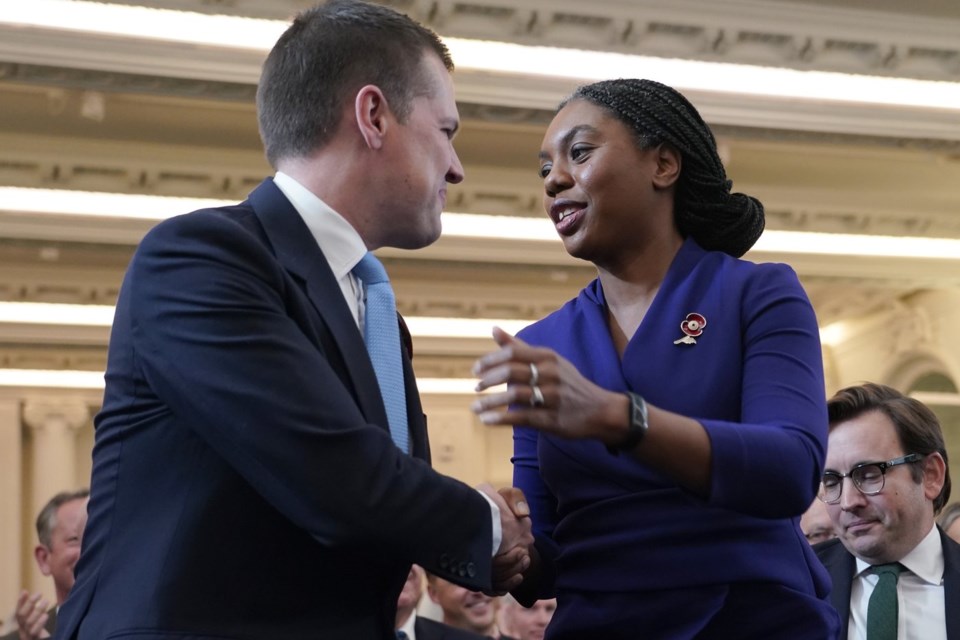The British cannot help themselves. They are a meddling island people who conquered huge swathes of the earth in a fictional fit of absentmindedness...
Vous n'êtes pas connecté
- English
- Français
- عربي
- Español
- Deutsch
- Português
- русский язык
- Català
- Italiano
- Nederlands, Vlaams
- Norsk
- فارسی
- বাংলা
- اردو
- Azərbaycan dili
- Bahasa Indonesia
- Հայերեն
- Ελληνικά
- Bosanski jezik
- українська мова
- Íslenska
- Türkmen, Түркмен
- Türkçe
- Shqip
- Eesti keel
- magyar
- Қазақ тілі
- Kalaallisut ; kalaallit oqaasii
- Lietuvių kalba
- Latviešu valoda
- македонски јазик
- Монгол
- Bahasa Melayu ; بهاس ملايو
- ဗမာစာ
- Slovenščina
- тоҷикӣ ; toğikī ; تاجیکی
- ไทย
- O'zbek ; Ўзбек ; أۇزبېك
- Tiếng Việt
- ភាសាខ្មែរ
- རྫོང་ཁ
- Soomaaliga ; af Soomaali
Rubriques :
 Maroc - EURASIAREVIEW.COM - A la une - 10/Sep 23:30
Maroc - EURASIAREVIEW.COM - A la une - 10/Sep 23:30
Is The UK Still A Soft Power Superpower? – Analysis
By Shairee Malhotra and Aaran Pilot The United Kingdom (UK) has consistently ranked high in soft power indices. A British Council soft power study from 2020 finds Britain as the most attractive nation amongst the G20 nations for young people. However, other countries such as Canada and Italy followed close behind, with barely a percentage of difference from the UK. Consultancy Brand Finance’s annual Global Soft Power Index 2024 ranks Britain second in terms of soft power, just behind the United States (US). The term ‘soft power’ coined by Joseph Nye, refers to “a nation’s ability to achieve its objectives through attraction and persuasion rather than coercion”. Yet the UK’sIntegrated Review strategy of 2021lacked adequate focus on promoting the country’s soft power dimension. TheIR Refresh, an updated version that was released in 2023 to factor in recent volatile events such as Russia’s war on Ukraine, again included minimal sections on soft power. Adapting to a more security-centric world, the 100-page document only contained vague statements such as the UK “will do more to bring soft power into its broader foreign policy approach”, without going into specifics.The Guardianposits that both Britain’s soft and hard powerreducedunder 14 years of Conservative rule, with years of domestic political instability leading to a loss of credibility abroad. More recently, under Prime Minister Keir Starmer’s leadership, widespreadtensions and riotsbetween Britain’s far-right and ethnic communities have further dealt a blow to the idea of a multicultural Britain. Several factors have resulted in a decline of the UK’s soft power, as explored below. The impact of Brexit Soft power not only depends on a country’s ability to export culture, but also denotes a perception about a country’s openness. A core component is a country’s ability to become and remain anaspirational destinationfor the global community as a means of economic, social, and cultural fulfilment. Following the 2016 referendum, Brexit tarnished this image and led to a perception of the UK being insular and less collaborative, while reducing its appeal as a preferred global destination. While British soft power held strong in the Indo-Pacific region and amongst Commonwealth nations, the British Council study posits that it wasnegatively impactedin European countries following Brexit. Brexit also led to altered regulatory norms, which made exchange of labour and capital more difficult, thereby impacting the UK’s capacity to generate soft power influence as well. Global Britain vs domestic rhetoric Despite the ‘Global Britain’ narrative promulgated by the Tories in an attempt to compensate for the loss of influence brought by Brexit, domestic rhetoric and policies have often been contradictory. Outreach to countries in Asia and Africa has been accompanied by anti-immigration rhetoric at home. Cuts to Britain’s overseas aid budget hasdiminishedits status on international development. In 2019, the UKspent£15.1 billion on foreign aid, which was reduced to £11.4 billion in 2021, but rose slightly to £12.8 billion in 2022. In addition, internal divisions between the cultural identities of different parts of the UK (Scotland, Wales, Northern Ireland and England) have reduced the country’s ability to project a strong unified culture, further diluting the UK’s soft power. On the other hand, countries such as India, China, and South Korea are expanding their global soft power outreach. India hasstrategically deployedits cultural practices like Yoga as powerful tools to further Indian influence abroad. In 2020, the UK spent2.75 per cent of its GDPon international engagement, but this included the entire gamut from intelligence, defence, diplomacy to foreign aid. In comparison,The Economistestimatesthat China spends US $10 billion per year on soft power. Even the UK’s European counterparts such as France spenddouble the amounton soft power promotion compared to the UK. Despite Britain’s development of a vaccine against COVID-19, its decision to‘hoard’vaccines at the expense of poorer nations served as another dent on its global clout. Moreover, the rise of nationalism and increasing confidence within postcolonial societies such as India is resulting in an active rejection of Western, including British, influences, in a quest to return to their own roots. The UK has, thus far, not adopted a strategy to adapt its soft power approach considering this growing competition. A string of budget cuts Budget cuts to the British Council, the UK government’s cultural wing thatclosed20 of its offices across the globe in 2021, and withdrawals from collaborative programs such asErasmushave diminished the UK’s ability to make its presence felt globally. More pressing foreign policy priorities, such as increasing the share of bilateral spending vis-à-vis multilateral spending, have resulted inreducedinvolvement and funding to multilateral organisations. For example, the World Bank’s International Development Association (IDA) will see the UK’s contributionreduceby 54% between 2020-23 to 2022-25. Moreover, the world-wide rise of independent journalism and social media have adversely impacted legacy media, and the UK press is no exception to this phenomenon. Outlets such as the BBC, traditionally a major source of Britain’s soft power, have suffered from funding cuts andincreased scrutinyregarding their impartiality and bias. Financial power was a key means for the UK to retain its global competitive edge, patronise the arts, and influence global preferences and practices. Systematic budget cuts and withdrawals affect the UK’s ability to sustain that influence. UCL Professor Arthur Petersonclaims, “Higher education has been a source of soft power since the Middle Ages”. Nowhere does this apply more than the UK, which has long been a preferred destination for international students, who take their experiences of British education, life and values back to their home countries. Universities have been at the heart of British soft power, but thenumbers of international studentshave taken a hit as a consequence of unfriendly policies aimed at curbing migration flows. International events and festivals have served as a key source of British soft power. But iconic events have facedchallengesin maintaining their international reach since the COVID-19 pandemic. Astudyfound that one in six UK music festivals disappeared after the pandemic with the growing cost of living and Brexit contributing to the problem. Reclaiming Britain’s soft power Recent global events such as the wars in Ukraine and Gaza have driven home the inevitability and necessity of traditional hard power. Yet, in an increasingly complex multipolar geopolitical environment and the rise of new powers, the instruments of power are also myriad. For at least the last decade, Britain has confronted a stagnant economy. It is estimated that the country’s GDPincreasedby only 0.1% in 2023. On the other hand, India overtook the UK as the world’s fifth largest economy in 2022. Given emerging global realities, the UK’s permanent seat on the United Nations Security Council (UNSC) is increasingly contested by rising powers. As the gap between the UK and other top world economies widens, soft power—an area of inherent strength for the UK—becomes an even more important global instrument to harness. Recognising this imperative, aSoft Power Research Groupwas convened by the British Council and British Foreign Policy Group (BFPG) in 2020, with the aim of “strengthening the UK’s soft power capabilities, advancing its global influence and representing and promoting its values”. Moving forward, mending the UK’s fraught relationship with the European Union is key. The UK’s staunch military and financial support to Ukraine, at over£12 billion, has been instrumental in regaining lost trust with European allies. Under Prime Minister Keir Starmer’s leadership, further diplomatic endeavours are already bearing fruit. Only two weeks into his term, and Starmer had alreadyhosted45 European leaders as part of the European Political Community (EPC). Foreign Secretary David Lammy has vowed toprioritisethe UK’s relations with countries in the Global South, with India being his first high-level international engagement since assuming office. Advocating for a more level-playing field in multilateral institutions such as the UNSC is another step towards generating the Global South’s trust and reiterating the UK’s commitment to multilateral reforms.Mobility and Migration Partnershipswith countries like India are being implemented to streamline pathways for legal migration for students and rejuvenate the UK’s educational appeal. Finally, social media and digital platforms have evolved as the new frontiers of diplomacy. The world has witnessed an exponential increase in the use of social media to shape international narratives in pursuit of diplomatic objectives such as during the conflicts inUkraineandIsrael-Palestine. Harnessing the potential of social media especially through collaborations between the British Council and creators and influencers can form part of the strategic framework to increase the UK’s soft power. This also allows outreach to focus on the younger generation, which can potentially yield long term dividends on the country’s foreign policy investments. About the authors: Shairee Malhotra is Associate Fellow, Europe with ORF’s Strategic Studies Programme. Aaran Pilot is Research Intern at ORF. Source: This article was published by the Observer Research Foundation
Articles similaires
Indonesia’s Interest In Joining BRICS: Pursuing Economic Security And Global Influence – Analysis
BRICS, a coalition comprising five major emerging economies—Brazil, Russia, China, India, and South Africa—collectively accounts for...
MoneyGram customers can no longer collect from UK post offices
MoneyGram International has lost one of its most popular collection points in Britain, and that is upsetting some Bermuda customers. The British post...
Brexit lost Britain the Chagos Islands – former Foreign Office civil servant reveals
“In a way this is the first element of Brexit leading to the UK losing territory. It showed how that initial grab for purported sovereignty might...
How a Trump Win Could Transform Global Reforms Worldwide
According to the United Nations, 2024 marks “the most significant election year in human history,” with around half of the global...
What Impact Did Brexit Have on the UK’s and Spain’s Historic Trading Partnership?
The UK has seen a measurable shift in its trading relationships with other European countries like Spain since its official departure from the...
Beyond Borders: How Iran’s Internal Repression Fuels Regional Conflict And Global Outcry – OpEd
The news of Maryam Akbari Monfared's extended sentence was deeply shocking this week. A mother of three daughters, Maryam was arrested while putting...
Layers of diplomacy
Trinidad and Tobago is seldom mentioned, whatever the reason, in the world’s leading non-English newspapers. Yet last week we appeared in none...
UK Conservatives pick Kemi Badenoch as new leader, first Black woman to head a big British party
LONDON (AP) — Outspoken, right-leaning lawmaker Kemi Badenoch was named leader of Britain's opposition Conservatives on Saturday, as the party tries...
Wings Of Unity: Indus Shield 2024 Military Exercise – OpEd
A landmark multilateral military exercise Indus Shield 2024 conducted by Pakistan, serves as a testament to the nation's commitment to regional...
Les derniers communiqués
-
Adobe Brings Conversational AI to Trillions of PDFs with the New AI Assistant in Reader and Acrobat
Adobe - 21/02/2024
-
Laura Frigenti takes the Helm as Chief Executive Officer of the Global Partnership for Education
Global Partnership for Education - 05/12/2022




